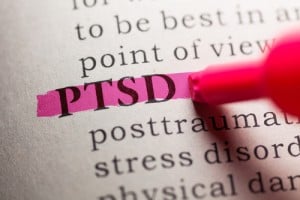
To measure the relationship between the brain systems in question, the researchers used positron emotion tomography (PET), which measures the distribution of chemicals in the brain. They focused on two brain systems: serotonin (related to feelings of happiness) and substance P (related to pain and inflammation).
According to the data, greater imbalance between the serotonin and substance P systems is linked to increased PTSD symptom severity. The imbalance had a bigger impact on PTSD severity than the level of change in a single system.
The researchers say that the results may result in new ways to treat PTSD.
“At present, PTSD is often treated with selective serotonin re-uptake inhibitors (SSRIs), which have a direct effect on the serotonin system. SSRI drugs provide relief for many, but do not help everybody. Restoring the balance between the serotonin and substance P systems could become a new treatment strategy for individuals suffering from traumatic incidents,” stated lead study author Andreas Frick, of Uppsala University’s Department of Psychology.
This research is published in the journal Molecular Psychiatry.
Previous news in PTSD:



 © 2025 Unyte Health US Inc.
© 2025 Unyte Health US Inc.